Like every festival, Navratri has some special stories behind it. And like most stories, these stories have lessons that bring wisdom and peace to the humdrum of this existence. The lessons behind each of these stories can be distilled into inspiring quotes that you can share with your loved ones, this festive season. We share a few quotes inspired by three amazing Navratri stories.
The story of Devi and Mahishasura
Once upon a time, the demon Mahishasura attacked the three worlds of heaven, hell, and earth. The gods decided to wage a war against the demon but failed because he carried a boon that no god or man could defeat him. The gods asked Lord Vishnu for help. Lord Vishnu, along with Lord Brahma and Lord Shiva, used their powers to create Goddess Durga, who fought with the demon for fifteen days. The war ended with the Goddess finally slaying Mahishasura with her trident.
The symbolism and lesson behind the story
The word Mahisha means buffalo which symbolizes laziness, lethargy, small-mindedness, and inertia (tamogun). In that state, we say, ‘oh, everything goes, everything happens, everything is okay, corruption is okay, without that, life will not go on. Things will not work; one has to be corrupt.’ This kind of attitude and mindset denotes Mahishasura. These traits can only be overcome with the power of one’s consciousness denoted by Goddess Durga. Navratri is a celebration of her energy.
Inspiring quotes from this Navratri story


The story of Goddess Chandi and Shumbha & Nishumbha
A long time ago, there were two demons, Shumbha and Nishumbha. As they became very powerful, they started committing atrocities on everyone. That was when Devi (Mother Divine) arrived on a lion to slay them. When they saw Devi approaching them, they were smitten and asked her to marry them. She set a condition to marry whoever could defeat her in a battle. This seemed a very small matter to the powerful demons. They sent their assistants, Dhumralochana, Chanda, and Munda to fight with her. The three of them fought with her but were killed. Finally, Shumbha and Nishumbha also fought but were also annihilated. That is how Mother Divine became victorious over all these demons.
The symbolism and meaning behind these stories
The demons in the story represent particular negative tendencies that can be overcome only when the Shakti or life force energy within us rises.
Demon | Meaning |
Shumbha & Nishumbha | Lack of self-confidence & doubt about others |
Dhumralochan | Smoky-eyed one (When you have too many doubts, those with a foggy vision confirm your doubts) |
Chanda | The one with only the head - Arrogance, adamant and unreasonable attitude |
Munda | The one with a body and no head - Mindless action |
May the Devi destroy your inner doubts and mental blocks and help you reach success in all your endeavors.
Inspiring quotes from this Navratri story
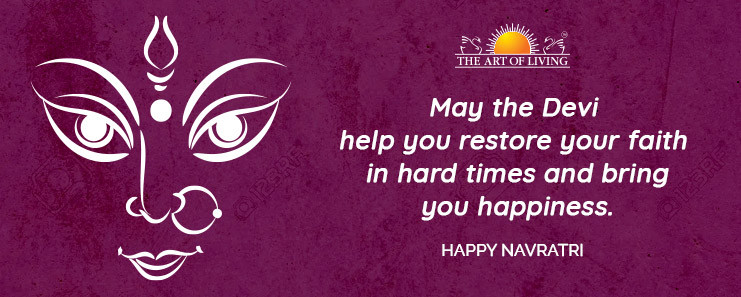
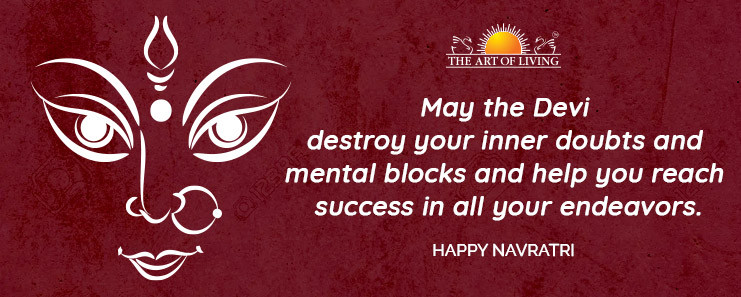
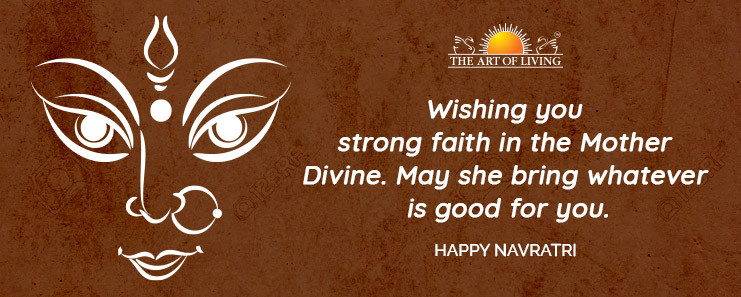
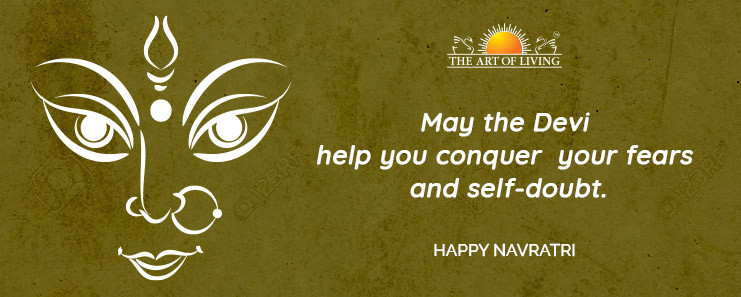
The story of Goddess Kali and Raktabeejasura
Raktabeejasura was a demon in the army of Shumbha and Nishumbha. Whenever Raktabeejasura bled onto the ground from the blow of Devi’s trident, another demon resembling Raktabeejasura would spring up. This made it hard for anyone to conquer him. The Devi transformed into Goddess Kali, who drank every drop of blood from the demon’s body, ultimately conquering him.
The symbolism and meaning behind the story
Raktabeeja had a boon that when a drop of his blood fell to the ground, hundreds of Raktabeejas were born. This indicates that all our qualities and history are embedded in every DNA of ours. So, it is essential that we are transformed from the basics. Devi does just this. She comes with a trident of wisdom, love, and action and frees you from demonic qualities that are present deep in your DNA.
Inspiring quotes from this Navratri story
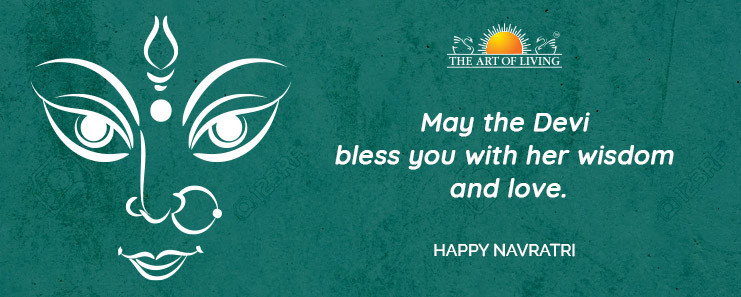


* For all spiritual seekers, it is a time to observe one’s nature as it moves from Tamas (Inertia) to Rajas (Activity) to Sattva (Purity). It is a time to reflect upon oneself and our attitude towards life.
* From the Vedantic point of view, the victory is of the absolute reality over the apparent duality. The truth that everything is One is something which does not dawn in us in our everyday lives.
"The word ‘Ratri’ means rest or relief from three ‘tapas’, three types of fire or botherations- the physical, the subtle and the conscious. A deep rest can relieve you from all these three botherations.
It’s a time of prayer and rejuvenation. A child is born in nine months. These nine days are like coming out of a mother’s womb once again. Having a new birth.” - Gurudev Sri Sri Ravi Shankar
The first three days are dedicated to Durga Devi, the next three days to Lakshmi Devi and the last three days to Saraswati Devi.
The prayer, chanting, and meditation performed during Navratri connect us with our spirit.
Kolkatta, Ahmedabad and Varanasi
Goddess Durga, Goddess Lakshmi and Goddess Saraswati are worshipped during Navratri.






























































